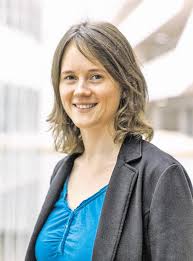The University of Salzburg has published a study by Salzburg’s contemporary historian Bernadette Edtmaier on the subject of antisemitism among Austria’s young people. According to this, the vast majority of the 330 respondents between the ages of 13 and 24 were empathetic with Jews, and they resolutely rejected antisemitism.
The girls and boys were interviewed in writing about their picture about Jews. Around one in five said that it was potentially antisemitic. According to the author, it was unclear in several cases whether the answer was clearly antisemitic or not. The spectrum of antisemitism ranged from emotionally charged statements such as “I hate Jews” to cautious comments that allude to stereotypes such as “I heard that they were rich”.
The respondents’ religious affiliation was particularly important, explained Edtmaier. Muslim young people and those with a Turkish and ex-Yugoslav migration history are somewhat overrepresented within the spectrum of antisemitism. Almost two thirds of all adolescents who expressed (potentially) antisemitic claims to be Muslims. They expressed aversion to Jews, particularly in the context of the Israel-Palestine conflict, and mostly clearly sided with the Palestinians.
 |
| Bernadette Edtmaier |
The exploratory study was carried out as part of Edtmaier’s dissertation and does not claim to be representative, the sample is too small for that. This is why representative and comprehensive studies are needed to determine to what extent correlations with antisemitic statements can actually be demonstrated along these socio-demographic characteristics, the young researcher found.
However, she referred to other surveys in Austria and Germany, in which the same pattern as in your survey can be found. Antisemitism among Muslim young people could, however, also be a reaction to experienced discrimination, said the contemporary historian. Because especially Muslim people with migration histories are often very severely affected by social exclusion and poverty. The study also suggests that, compared to non-Muslim young people, Muslim young people are far less aware of the “speaking taboo of Jews” and are less likely to give socially desirable answers, which in turn relativizes the dominance of Muslim young people in antisemitic responses to a certain extent.
Politicians often discuss the mandatory visit to a concentration camp memorial as a means of reducing antisemitic attitudes. Edtmaier disillusioned: “A detailed analysis of the responses of those adolescents who expressed themselves antisemitic shows that interest in the Nazi era does not necessarily ‘immunize’ against antisemitic attitudes. Our data thus follow up on other studies.” Almost two-thirds of those surveyed by Edtmaier who were potentially antisemitic have already visited a concentration camp memorial. “If you want to reduce antisemitism among young people in Austria, other strategies are needed. Further studies on this question are urgently needed,” said the scientist.
Due to the politicization of the topic, it was not easy to obtain funding, added Salzburg historian Helga Embacher. She supervised Edtmaier’s dissertation. Last but not least, antisemitism is politically exploited from different sides, said Embacher.
Source: apa






